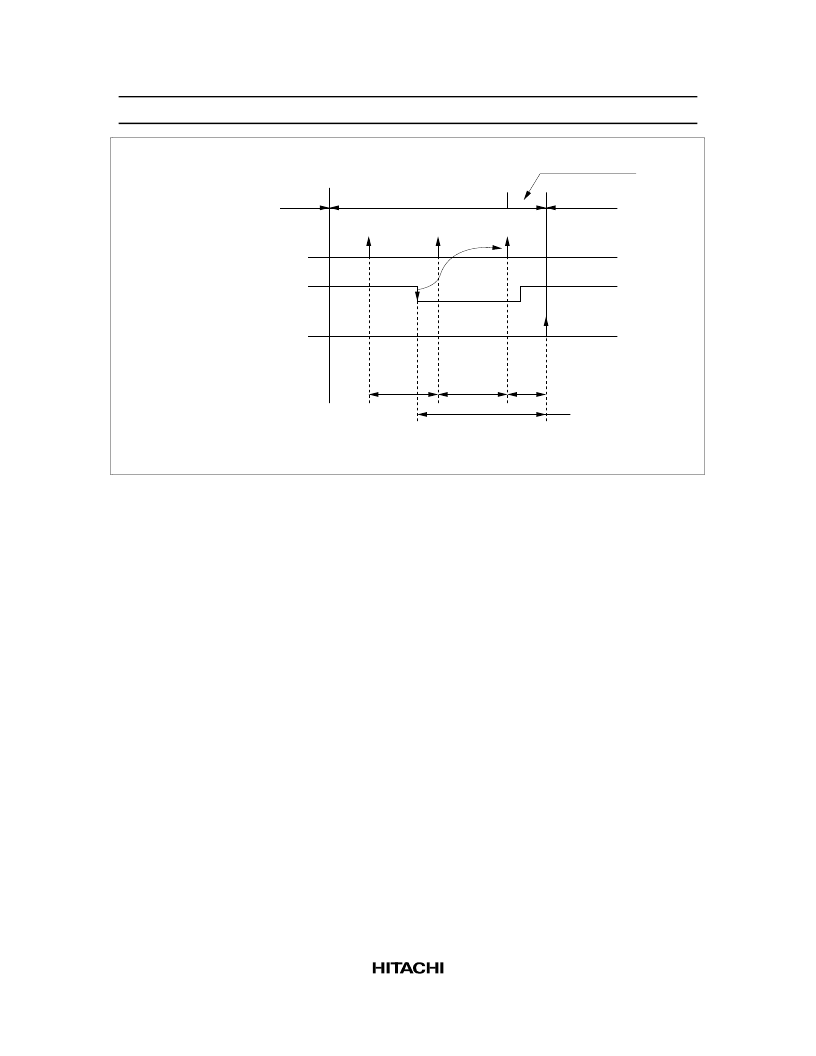- 您現(xiàn)在的位置:買賣IC網(wǎng) > PDF目錄370462 > HD4074459 (Hitachi,Ltd.) 4-bit HMCS400-Series microcomputer(4位單片微計算機) PDF資料下載
參數(shù)資料
| 型號: | HD4074459 |
| 廠商: | Hitachi,Ltd. |
| 英文描述: | 4-bit HMCS400-Series microcomputer(4位單片微計算機) |
| 中文描述: | 4位HMCS400系列微機(4位單片微計算機) |
| 文件頁數(shù): | 32/120頁 |
| 文件大?。?/td> | 692K |
| 代理商: | HD4074459 |
第1頁第2頁第3頁第4頁第5頁第6頁第7頁第8頁第9頁第10頁第11頁第12頁第13頁第14頁第15頁第16頁第17頁第18頁第19頁第20頁第21頁第22頁第23頁第24頁第25頁第26頁第27頁第28頁第29頁第30頁第31頁當(dāng)前第32頁第33頁第34頁第35頁第36頁第37頁第38頁第39頁第40頁第41頁第42頁第43頁第44頁第45頁第46頁第47頁第48頁第49頁第50頁第51頁第52頁第53頁第54頁第55頁第56頁第57頁第58頁第59頁第60頁第61頁第62頁第63頁第64頁第65頁第66頁第67頁第68頁第69頁第70頁第71頁第72頁第73頁第74頁第75頁第76頁第77頁第78頁第79頁第80頁第81頁第82頁第83頁第84頁第85頁第86頁第87頁第88頁第89頁第90頁第91頁第92頁第93頁第94頁第95頁第96頁第97頁第98頁第99頁第100頁第101頁第102頁第103頁第104頁第105頁第106頁第107頁第108頁第109頁第110頁第111頁第112頁第113頁第114頁第115頁第116頁第117頁第118頁第119頁第120頁

HD404459 Series
32
Active mode
Watch mode
Active mode
Oscillation
stabilization period
Interrupt strobe
Inte, rupt, trobe
INT
,
WU
–
WU
0
Interrupt request
generation
(During the transition
from watch mode to
active mode only)
0
7
T
T
t
RC
Tx
T:
t :
Interrupt frame length
Oscillation stabilization period
T + < Tx < 2T +
t
t
RC
Figure 17 Interrupt Frame
Subactive Mode:
The OSC
1
and OSC
2
oscillator stops and the MCU operates with a clock generated by
the X1 and X2 oscillator. In this mode, functions other than the voltage comparator operate. However,
because the operating clock is slow, the power dissipation becomes low, next to watch mode.
The CPU instruction execution speed can be selected as 244
μ
s or 122
μ
s by setting bit 2 (SSR12) of the
system clock select register (SSR1: $029). Note that the SSR12 value must be changed in active mode. If
the value is changed in subactive mode, the MCU may malfunction.
When the STOP or SBY instruction is executed in subactive mode, the MCU enters either watch or active
mode, depending on the statuses of the low speed on flag (LSON: $020, bit 0) and the direct transfer on
flag (DTON: $020, bit 3).
Subactive mode is an optional function that the user must specify on the function option list.
Interrupt Frame:
In watch and subactive modes,
CLK
is applied to timer A and the
INT
0
and
WU
0
–
WU
7
circuits. Prescaler W and timer A operate as the time-base and generate the timing clock for the interrupt
frame. Three interrupt frame lengths (T) can be selected by setting the miscellaneous register (MIS: $00C)
(figure 18).
In watch and subactive modes, a timer A/
INT
0
wakeup interrupt is generated synchronously with the
interrupt frame. The interrupt request is generated synchronously with the interrupt strobe timing except
during transition to active mode. The falling edge of the
INT
0
and
WU
0
–
WU
7
signals is input asynchro-
nously with the interrupt frame timing, but it is regarded as input synchronously with the second interrupt
strobe clock after the falling edge. An overflow and interrupt request in timer A is generated synchronously
with the interrupt strobe timing.
相關(guān)PDF資料 |
PDF描述 |
|---|---|
| HD404458 | 4-bit HMCS400-Series microcomputer(4位單片微計算機) |
| HD404459 | 4-bit HMCS400-Series microcomputer(4位單片微計算機) |
| HD40A4052 | 4-Bit Single-Chip Microcomputer(4位單片微計算機) |
| HD404092 | 4-Bit Single-Chip Microcomputer(4位單片微計算機) |
| HD404094 | 4-Bit Single-Chip Microcomputer(4位單片微計算機) |
相關(guān)代理商/技術(shù)參數(shù) |
參數(shù)描述 |
|---|---|
| HD4074459H | 制造商:未知廠家 制造商全稱:未知廠家 功能描述:4-Bit Microcontroller |
| HD4074509FS | 制造商:未知廠家 制造商全稱:未知廠家 功能描述:4-Bit Microcontroller |
| HD4074608FS | 制造商:未知廠家 制造商全稱:未知廠家 功能描述:4-Bit Microcontroller |
| HD4074608H | 制造商:未知廠家 制造商全稱:未知廠家 功能描述:4-Bit Microcontroller |
| HD4074618 | 制造商:HITACHI 制造商全稱:Hitachi Semiconductor 功能描述:4-Bit Single-Chip Microcomputer |
發(fā)布緊急采購,3分鐘左右您將得到回復(fù)。